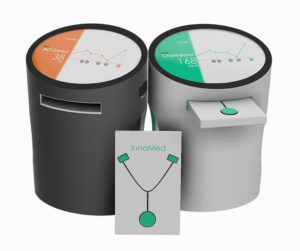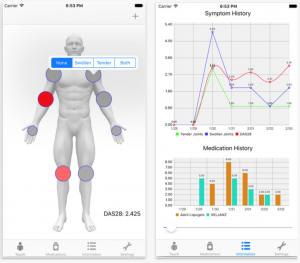BOULDER, CO – When the Boomtown Health-Tech Accelerator’s inaugural class of startups graduated earlier this year, Tom Base, the Boulder-based business accelerator’s managing director, planned to continue to accept only early stage digital health companies into its next class. But an influx of applications from a range of health-tech startups quickly made him reconsider that plan.
“We were seeing this demand,” Base explained, “and we didn’t want to turn them down. So we did our due diligence, talking with our experts and asking them if these companies were viable.”
Alongside medical advisors from Colorado Permanente Medical Group (CPMG), Base identified two digital health companies, a device company, and a diagnostics company to accept into the accelerator’s current class. (The device company declined to be interviewed for this article.) Now, with the help of experts from the Colorado BioScience Association (CBSA) and the Fitzsimmons Redevelopment Authority (FRA), Base is empowering Boomtown’s second cohort of health-tech startups to build the future of healthcare.
Convenient Home Blood Tests
It’s easy to see why Base chose InnaMed to be the first diagnostics startup accepted into the Boomtown Health-Tech Accelerator. This early stage company is currently developing a device that will allow consumers to quickly, accurately, and painlessly test their blood in the convenience of home.
“After surveying over a hundred and fifty doctors around the world, we chose eight chemicals to test for,” said Eshwar Inapuri, CEO of InnaMed. “These eight – which include glucose, cholesterol, and thyroxin – are really symbolic of how your body functions as a whole.”
When placed against a consumer’s thumb, the micro-needle array on InnaMed’s blood-testing device – which Inapuri described as feeling like the sharp side of Velcro – draws a few droplets of blood, which are then transferred to a disposable blood-testing chip. According to Inapuri, InnaMed’s technology will allow consumers to test their blood on a monthly, weekly, or even daily basis.
“After you eat a lot of food during the holiday season, you’ll actually be able to tell how that affects your cholesterol,” Inapuri explained. “It will make you aware of all of these things you might not have thought of before.”
Tell Me Where It Hurts
One of the two digital health companies in Boomtown’s current health-tech class, cliexa develops mobile applications that assist users in managing their chronic diseases. The company’s rheumatoid arthritis application, cliexa-RA, allows individuals with this chronic condition to use their smartphones to record when and where they feel tenderness or pain.
“From this information, the app calculates a disease activity score, which is widely used by doctors,” said Mehmet Kazgan, cliexa’s CEO. “This score is then correlated with the patient’s medicine intake and sent to their doctor.”
By combining the two most common ways of managing rheumatoid arthritis – the disease activity score and a survey known as the Modified Health Assessment Questionnaire (mHAQ) – cliexa-RA provides physicians with a way to keep tabs on their patients’ progress outside of the clinic. According to Kazgan, his company’s FDA-approved program also alerts clinicians when their patients’ disease activity scores fluctuate dangerously, allowing the clinicians to contact patients and help them manage their condition.
Finding the Right Home
Choosing an assisted living facility for an aging loved one can be a difficult decision for many to make. To alleviate this difficulty, digital health startup Mimi has created an online platform that matches elderly individuals with Care Homes – small assisted living facilities that often feature no more than ten residents and are generally located within residential neighborhoods.
“We streamline the search process with our Care Match tool,” explained Benoit Cauwe, Mimi’s lead developer. “We have developed an assessment, and as applicants go through the questions, we filter out results that don’t really apply.”
Instead of showing users a huge list of results that may or may not meet their needs, Mimi provides them with a handful of carefully selected Care Homes. When users encounter a facility they would like to tour, they have the option to schedule an appointment through the platform.
A Promising Start
When asked about the progress of his current class, Base emphasized the speed at which the four startups were moving, listing the numerous milestones they had already achieved, and noting the interest they had generated among CPMG, CBSA, and FRA.
“To hear all of these success stories in only the first month of the program is really exciting,” admitted Base. “It makes me feel like we’re really helping them execute on their business models.”
Calling all health-tech startups! Applications for the Boomtown Health-Tech Accelerator’s fall class are open. Apply now for the chance to work alongside Boomtown’s business experts and the medical professionals from Colorado Permanente Medical Group (CPMG).








Be the first to comment on "3 Startups That Are Building the Future of Healthcare"